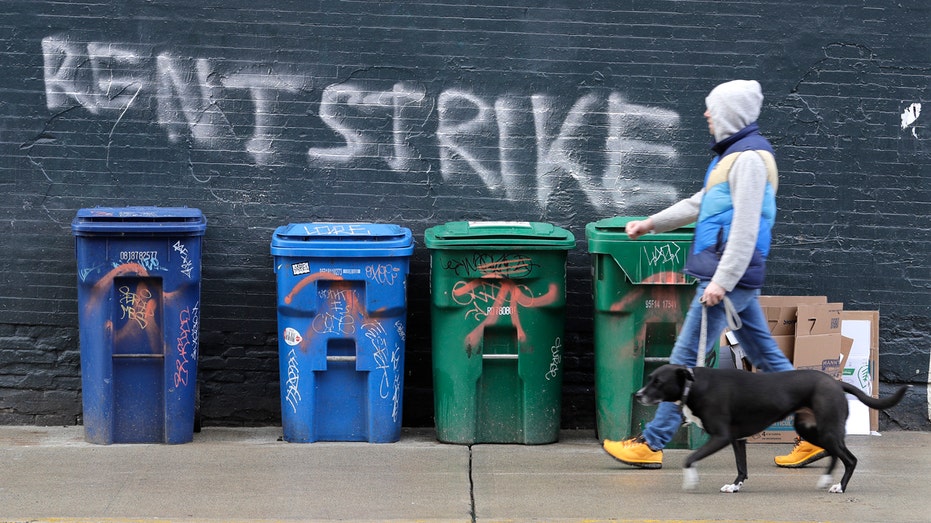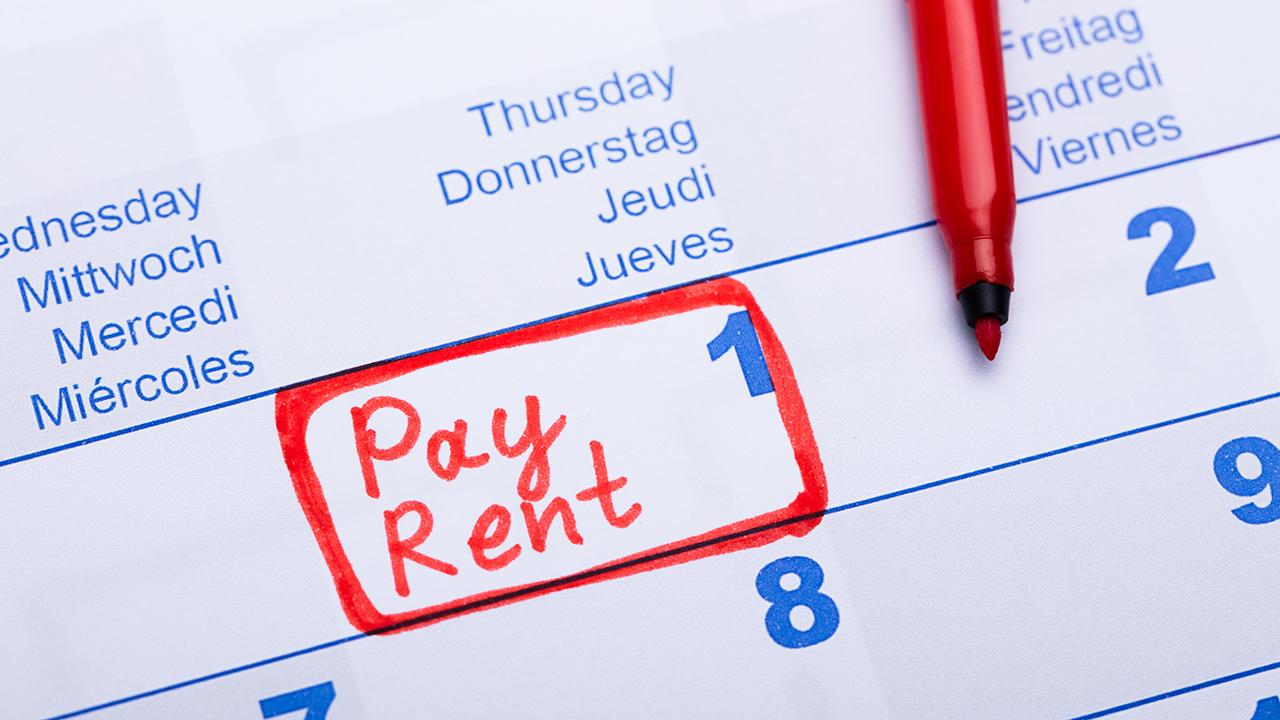May rent strike planned as coronavirus cripples US economy
Advocates worry about what will happen to those who were unable to pay rent once courts reopen
Get all the latest news on coronavirus and more delivered daily to your inbox. Sign up here.
Come Friday, for the second time since the U.S. locked down its economy to slow the spread of the novel coronavirus, monthly rent is due.
But as the financial pain inflicted by the coronavirus pandemic deepens — in the past six weeks alone, more than 30 million Americans joined the unemployment roll, the fastest pace recorded since the Great Depression — tenants and advocates have called for rent strikes and lobbied for massive government intervention as a housing crisis looms.
Strikes are planned in New York City, Philadelphia, Chicago and California beginning May 1. Organizers of a New York strike say they hope it prods lawmakers into offering more financial assistance during the crisis, including canceling rent for four months and offering tenants the right to renew their lease without rent increases.
“We’re stronger together and now is the time for tenants to act collectively,” one #CancelRent movement’s website reads. “Millions not paying rent doesn’t build power by itself; we only build power by making our individual actions public and collective! By joining this movement, we are making a coordinated demand for relief.”
A recent survey found the virus outbreak has affected the income of nearly two-thirds of all renters. Just 52 percent of respondents expected to be able to pay their full rent in May, compared to 69 percent who indicated they paid April’s rent in full, according to Grace Hill, a company that develops technology for the property management industry.
HALF OF AMERICANS SAY CORONAVIRUS HAS IMPACTED THEM FINANCIALLY
The crisis has walloped Americans financially: In the six weeks since widespread shutdowns started, more than 30 million workers have filed for first-time unemployment benefits, a stunning sign of the economic calamity inflicted by the virus. Unemployment at this scale hasn’t been recorded since the Great Depression, when the jobless rate peaked at 25 percent.
To dull the economic pain, some city and state governments — California, Pennsylvania and New York among them — have put moratoriums on evictions of both residential and commercial tenants. Meanwhile, several banks, including JPMorgan Chase and Wells Fargo, have agreed to halt foreclosures and temporarily waive mortgage payments for borrowers whose finances have been impacted by the outbreak.

A pedestrian walks past graffiti that reads "Rent Strike" Wednesday, April 1, 2020, in Seattle's Capitol Hill neighborhood. With millions of people suddenly out of work and rent due at the first of the month, some tenants in the U.S. are vowing to go (Associated Press)
But advocates worry about what will happen to those who were unable to pay rent once courts reopen.
“I’m not sure there are too many housing-court judges that are going to look kindly on someone not paying rents because they felt it was unfair,” Chris Herbert, managing director of the Harvard Joint Center for Housing Studies, told The Wall Street Journal.
Rent and mortgage payments are typically the largest monthly expense for Americans: One in four tenant families pays more than half of its income in rent, a rate that’s even higher in cities like San Francisco and New York, according to Harvard’s Joint Center for Housing Studies. An NPR/PBS NewsHour/Marist poll released Wednesday revealed that 50 percent of Americans said they or someone in their household has either lost a job or had their hours reduced as a result of the virus outbreak. That is up from 18 percent a month ago.
HALF OF WORKING AMERICANS MIGHT NOT HAVE A PAYCHECK IN MAY AS LAYOFFS SURGE
The issue could have a domino effect on the broader economy, according to Bob Pinnegar, president and CEO of the National Apartment Association. If tenants don’t pay rent, owners will struggle both to pay employees and to meet their own mortgage obligations, possibly putting their buildings at risk of foreclosure.
“It’s a ripple effect of economic destruction that is only going to make it much more difficult for all of us to get back to work,” Pinnegar told FOX Business.
About 91.5 percent of apartment households paid all or at least part of their April rent by the 26th, a lower rate than normal, according to data from the National Multifamily Housing Council and a group of real-estate providers.
Although NMHC President Doug Bibby said it was “encouraging” that apartment residents continued to pay their rent, he warned that their financial security is “unclear” and warrants additional federal relief.
“Others are drawing down savings and facing greater financial challenges, including higher health care costs,” he said. “For that reason, lawmakers need to act now to enact a direct renter assistance program.”
GET FOX BUSINESS ON THE GO BY CLICKING HERE




















